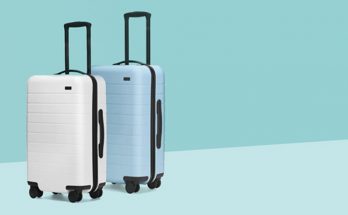 Are you tired of the daily grind? Are you an knowledgeable hair stylist that would like to live ‘the dream’? Well it is attainable… and it really is YOU that can make it come about.
Are you tired of the daily grind? Are you an knowledgeable hair stylist that would like to live ‘the dream’? Well it is attainable… and it really is YOU that can make it come about.
A concrete instance might help. A mortgage-backed safety is a pool of mortgages. Suppose that such securities were bundled collectively into mutual funds, held at floating value or exchange-traded, just like equities, in your and my retirement accounts and our endowments’ investments. This structure would be a terrific economic innovation. Though mortgage-backed securities are a bit opaque, they are nowhere close to as opaque as the whole balance sheet of, say, Citigroup. So, the monitoring and information functions we ask investors to play are a lot less difficult for a pool of mortgages than for Citigroup equity. Furthermore, such a structure would be immune to runs, bankruptices, requirements for bailouts and so forth, just as equities are. The fees required to fill out the mortgage-backed safety paperwork vs. the costs of bank paperwork are a tiny concern.
The main lesson from the experiment with the Euro is that a currency area can’t be set up without a central political body that is powerful sufficient to enforce the guidelines of the currency region. 1 can have separate states within the location, but, as in the United States, there need to be a political union with enough authority to dominate the individual elements of the region.
Great suggestions! I know you use Microsoft Cash and suggest Quicken, but you may well want to appear into some other options for private finance software to help you spending budget/save funds. Some well-known ones appropriate now are Green Sherpa, Mint, and Wesabe. I know one of the perks of Green Sherpa is the truth that it not only tracks past spending but it also enables customers to plan for their economic future by offering a Goalkeeper tool. I never consider Microsoft Funds or Quicken have a tool like that.
And the resale worth of the Ruckus is amazing. Last month (June 2012) I put an ad on Craigslist for my Ruckus just to fish around, satisfy my curiosity, and see what I could get for it. Right after receiving 20 offers in the course of a week, half of which seemed desperate and not even attempting to negotiate on my $2200 craigslist cost, I was blown away. I purchased the bike for $1800 in April 2011. If I had sold the bike, the extra $400 cash I would have created would have covered the $99 I paid for insurance coverage, $100 maximum I paid for gas on the year, and left me with about $200 in my pocket after all expenses were covered. Not undesirable.




